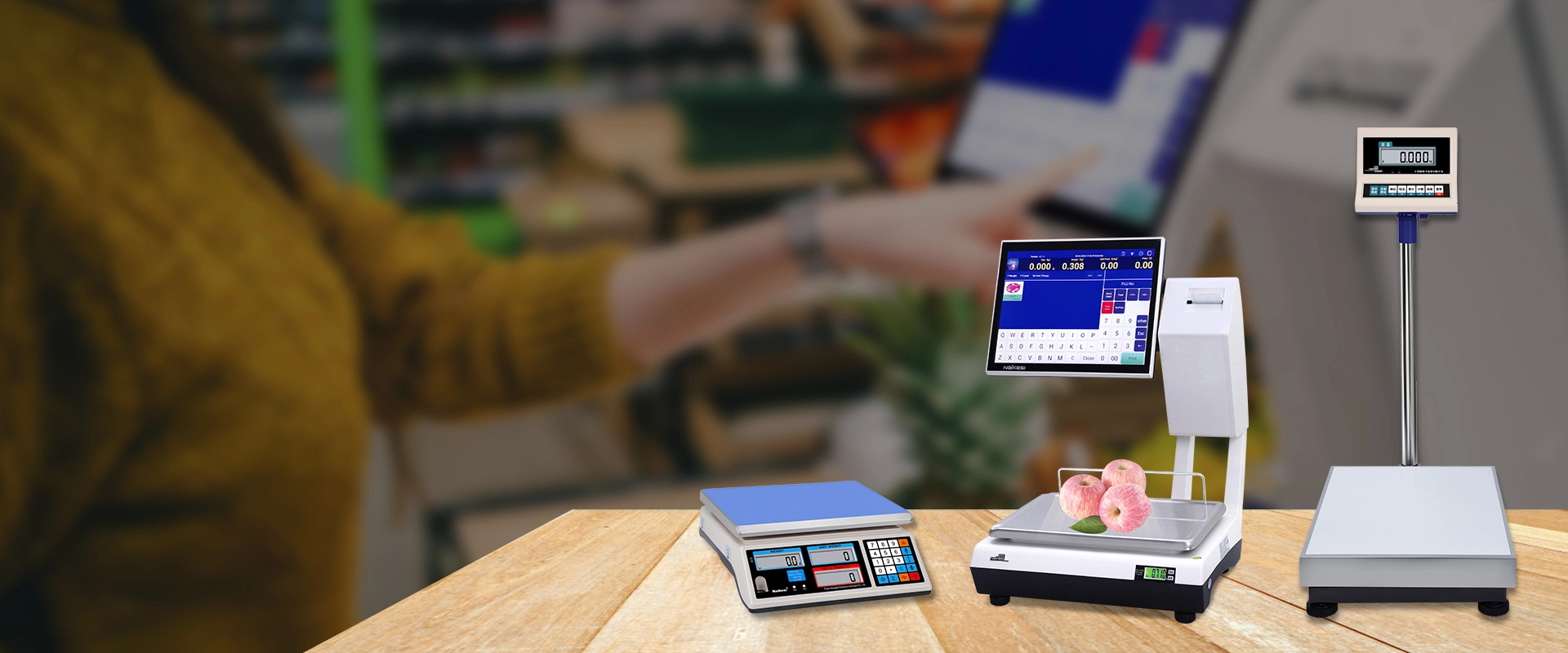BARCODE LABEL SCALE

Product omschrijving
BARCODE LABEL SCALE
The barcode label scale is designed specifically for cost-effective supermarkets and food retail stores. It offers simple operation, robust durability, and flexible software management, simplifying the weighing, sales, and category management processes. This helps retailers complete transactions with ease and confidence.
TYPES OF BARCODE LABEL SCALE
PC Intelligence Bar Code Label Scales ADS-T+
Label Scales
PC Intelligence Bar Code Label Scale ADS-F+
Barcode Printing Scale
AI Recognition Cashier Scale ADS-S
Ai Recognition Cashier Scale
Electronic Label Scale MDS-H/H+
Label Printing Scale
Bar Code Label Scale MDS-A+
Weighing Scale With Barcode Printer
Bar Code Label Scale MDS-A/B
Digital Scale With Barcode Printer
Bar Code Labe Scale MDS-E
Barcode Weighing Scale
Bar Code Label Scale ADS-302
Scale With Barcode Printer
Replace Suspension Type Bar Code Label Scale ADS-302T
Replace Suspension Type Bar Code Label Scale
Counting Label Scale ADS-303 NDS
Counter Weighing Machine
FEATURES OF THE BARCODE LABEL SCALE
Barcode Functionality: The barcode scale comes equipped with barcode scanning capabilities, enabling efficient and accurate item identification by simply scanning product barcodes.
Label Printing: This scale has a built-in label printing feature, allowing for seamless product labeling and pricing. It ensures that each item is appropriately marked with its price and other relevant information.
User-Friendly Interface: The scale offers a simple and intuitive user interface, making it easy for store employees to operate without the need for extensive training.
Durable and Reliable: Designed with robust materials, the Barcode Label Scale is built to withstand the demands of a busy retail environment, ensuring long-lasting performance.
Streamlined Processes: Its flexible software management simplifies various retail tasks, including weighing, sales, and category management. This streamlines overall store operations.
Pricing Accuracy: By scanning barcodes and printing labels, the scale minimizes pricing errors, ensuring accurate pricing for products and reducing customer disputes.
Regulatory Compliance: The scale helps retailers adhere to labeling regulations and standards, ensuring that all products are appropriately labeled with required information.
Enhanced Customer Experience: With efficient and accurate weighing and pricing, the scale contributes to a smoother and more pleasant shopping experience for customers.
Cost-Effective Solution: The Barcode Label Scale offers a cost-effective solution for supermarkets and food retail stores, providing a valuable tool to optimize retail operations and increase productivity.
WHAT IS BARCODE LABEL SCALE
A scalable barcode labeling, also known as a price computing scale, is a type of digital scale used primarily in retail and grocery stores. It not only weighs items but also calculates their price based on their weight and prints out a barcode label with this information.
Here’s how it works:
The scale is programmed with the price per unit weight for various items. For example, the price per kilogram for apples, oranges, etc.
When an item is placed on the scale, it measures the weight and calculates the total price based on the pre-programmed price per unit weight.
The scale then prints out a label with the item’s weight, price, and a barcode. This barcode can be scanned at the checkout counter for quick and accurate billing.
The label may also include other information such as the product name, date, and PLU (Price Look-Up) code.
Barcode label scales are a great tool for improving efficiency and accuracy in retail settings. They eliminate the need for manual price calculation and labeling, reducing the chances of human error. They also speed up the checkout process, as cashiers simply need to scan the barcode rather than entering the price manually.

